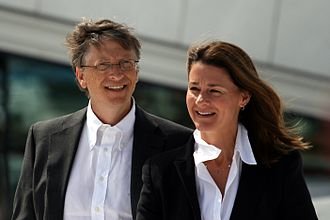Donald Trump-- Rag to Richest- his life lessons
Synopsis
U.S. President, real estate mogul and former reality TV star Donald John Trump was born in 1946, in Queens, New York. In 1971, he became involved in large, profitable building projects in Manhattan. In 1980, he opened the Grand Hyatt, which made him the city's best-known developer. In 2004, Trump began starring in the hit NBC reality series The Apprentice, which also spawned the offshoot The Celebrity Apprentice. Trump turned his attention to politics, and in 2015 he announced his candidacy for president of the United States on the Republican ticket. After winning a majority of the primaries and caucuses, Trump became the official Republican candidate for president on July 19, 2016. That November, Trump was elected the 45th President of the United States, after defeating Democratic candidate Hillary Clinton.
Early Life and Education
Donald John Trump was born on June 14, 1946, in Queens, New York, the fourth of five children of Frederick C. and Mary MacLeod Trump. Frederick Trump was a builder and real estate developer who specialized in constructing and operating middle-income apartments in Queens, Staten Island and Brooklyn. Donald was an energetic, assertive child, and his parents sent him to the New York Military Academy at age 13, hoping the discipline of the school would channel his energy in a positive manner.
Trump did well at the academy, both socially and academically, rising to become a star athlete and student leader by the time he graduated in 1964. He then entered Fordham University and two years later transferred to the Wharton School of Finance at the University of Pennsylvania, from which he graduated in 1968 with a degree in economics. During his years at college, Trump secured education deferments for the Vietnam War draft and ultimately a 1-Y medical deferment after he graduated.

First 100 Days
In the first days of his presidency, President Trump took swift action to make good on some of his campaign promises, issuing a number of back-to-back executive orders. One of his first orders was calling on federal agencies to "waive, defer, grant exemptions from, or delay" aspects of the Affordable Care Act to minimize financial burden on states, insurers and individuals. He also signed orders to implement a federal hiring freeze, withdraw from the Trans-Pacific Partnership and reinstate the Mexico City policy that bans federal funding of nongovernmental organizations abroad that promote or perform abortions.
President Trump also revived the controversial Keystone XL and Dakota Access Pipelines that had been halted by President Obama following protests from environmental and Native American groups. Trump owned shares of Energy Transfer Partners, the company in charge of construction of the Dakota Access Pipeline, but sold his stake in the company in December 2016. Energy Transfer Partners CEO Kelcy Warren also contributed to Trump’s presidential campaign raising concerns over conflict of interest.
Trump also addressed a controversial campaign promise, issuing an executive order to build a wall at the United States’ border with Mexico. In his first televised interview as president with ABC News, President Trump said the initial construction of the wall would be funded by U.S. taxpayer dollars, but that Mexico would reimburse the U.S. “100 percent” in a plan that has yet to be negotiated and might include a suggested import tax on Mexican goods. In response to the new administration's stance on a border wall, Mexican president Enrique Peña Nieto cancelled a planned visit to meet with President Trump. "Mexico does not believe in walls," the Mexican president said in a video statement. "I've said time again; Mexico will not pay for any wall." Trump and Peña Nieto spoke on the phone after their in-person meeting was cancelled, and "agreed at this point not to speak publicly about this controversial issue," according to a statement from the Mexican government.
In his first week in office, Trump also ordered the restriction of federal funds given to “sanctuary cities” that protect undocumented immigrants. At the end of his first week in office, President Trump also met with British Prime Minister Theresa May at the White House, his first meeting with a world leader, and had phone calls with various other foreign leaders including Russian president Vladimir Putin. He also tweeted his support for pro-life Americans at the March for Life, supporting their fight against abortion.
Russian Hacking
In January 2017, a U.S. intelligence report, prepared by the CIA, FBI and NSA, concluded that Russian president Vladimir Putin had ordered a campaign to influence the U.S. election. "We assess Russian President Vladimir Putin ordered an influence campaign in 2016 aimed at the U.S. presidential election,” the report said. “Russia’s goals were to undermine public faith in the U.S. democratic process, denigrate Secretary Clinton, and harm her electability and potential presidency. We further assess Putin and the Russian Government developed a clear preference for President-elect Trump."
Prior to the release of the report, President-elect Trump had cast doubt on Russian interference and the intelligence community’s assessment. "I just want them to be sure, because it's a pretty serious charge, and I want them to be sure,” he told reporters and then referred to the failed intelligence assessment that led to the Iraq War. “And if you look at the weapons of mass destruction, that was a disaster, and they were wrong."
Trump received an intelligence briefing on the matter, and in his first press conference as president-elect on January 11, he acknowledged Russia’s interference. "As far as hacking, I think it's Russia,” he said. “But we also get hacked by other countries and other people and I can say that."